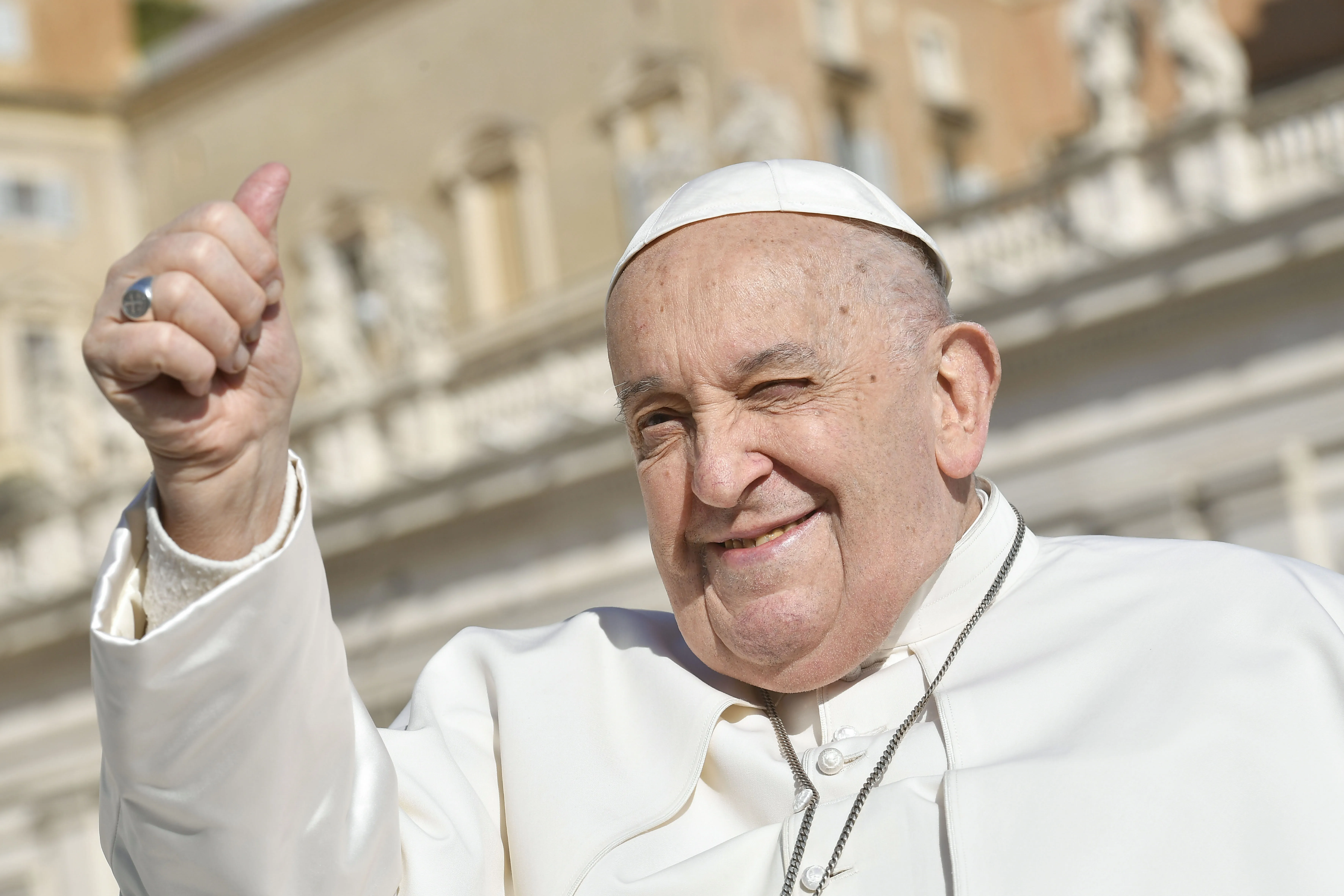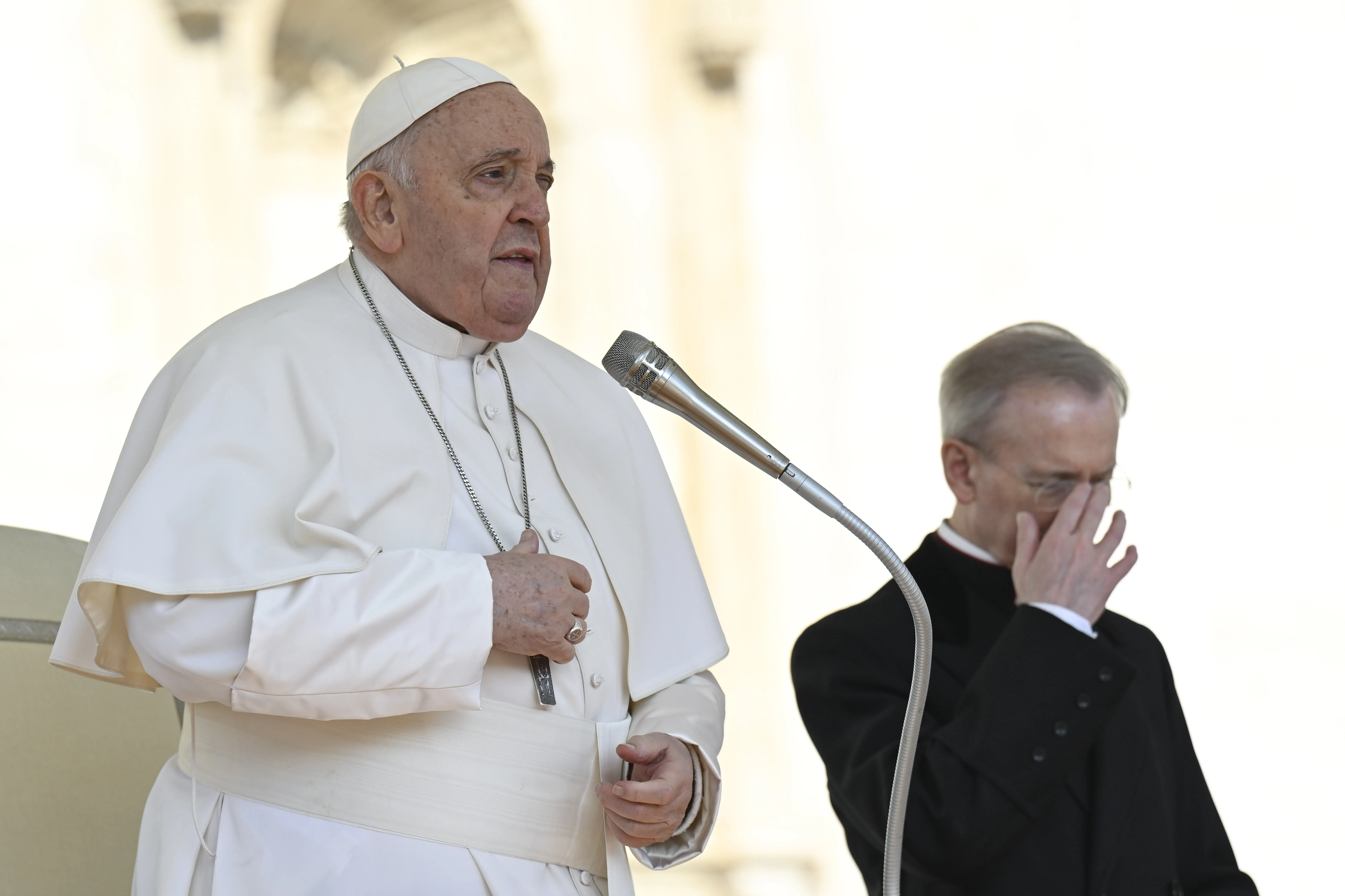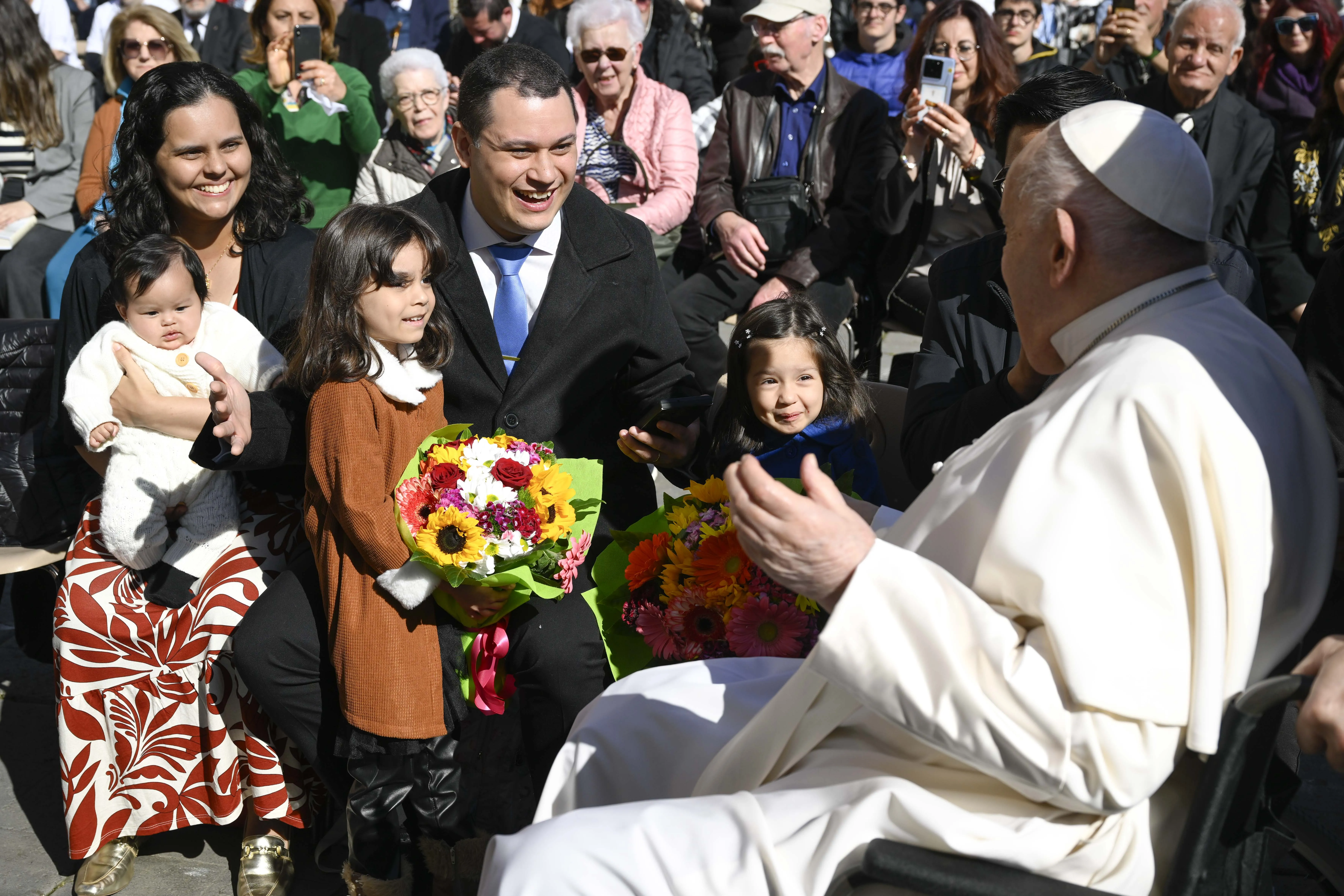
Rome Newsroom, Mar 20, 2024 / 12:50 pm (CNA).
Pope Francis on Wednesday reflected on the virtue of prudence, noting that it is an essential characteristic for good governance, an observation he made while renewing his call for negotiating an end to war.
“War is always a defeat. You can’t go on in war. We must make all efforts to negotiate, to negotiate, to end the war. Let’s pray for this,” the pope said during his Wednesday general audience in St. Peter’s Square at the Vatican.
While the 87-year-old pontiff arrived in the piazza greeting the faithful from the famous “Popemobile,” he relied on an aide to deliver the address.
“I asked Monsignor [Pierluigi Giroli] to read it because I still can’t,” the pope said.

The Holy Father has been assisted in his public remarks since late February when the Vatican announced he was suffering from “mild flu” symptoms. Despite the lingering symptoms, the pope has maintained a full schedule while gearing up for Holy Week in Rome.
The pope’s catechesis on Wednesday offered an outline of prudence — one of the four cardinal virtues — with the Holy Father noting that it is an essential characteristic for those “called to govern,” as it requires inner equilibrium and the ability to harmonize conflicting views.
“The prudent do not choose by chance,” the pope observed. “First of all, they know what they want, then they weigh up the situations, seek advice, and with a broad outlook and inner freedom, they choose which path to embark upon.”

The pope clarified that prudence, which is often conflated with “caution,” or hesitation, should instead be thought of as an innate capacity to act freely and creatively, free from sentimentalism and external pressures.
“Granting primacy to prudence means that the action of man is in the hands of his intelligence and freedom. The prudent person is creative: He or she reasons, evaluates, tries to understand the complexity of reality and does not allow him or herself to be overwhelmed by emotions, idleness, pressures, and illusions,” the pope reflected.

Francis also highlighted that the virtues are not static concepts but instead form a “living organism” and a point of encounter, and dialogue, with antiquity.
Virtues are not “the exclusive prerogative of Christians but rather belong to the heritage of ancient wisdom, in particular of the Greek philosophers,” the pontiff said.
“Life is made up of a constant overlapping of old and new things, and it is not always good to think that the world begins with us, that we have to deal with problems starting from scratch,” the pope said.
If you value the news and views Catholic World Report provides, please consider donating to support our efforts. Your contribution will help us continue to make CWR available to all readers worldwide for free, without a subscription. Thank you for your generosity!
Click here for more information on donating to CWR. Click here to sign up for our newsletter.





We read: ““First of all, they know what they want, then they weigh up the situations, seek advice, and with a broad outlook and inner freedom, they choose which path to embark upon.”
Apart from the context and complexity of current wars, it goes without saying the difference between well-informed “moral judgments” and “autonomous decisions”. As a supportive footnote to the above, this from St. Pope John Paul II:
“A separation, or even an opposition, is thus established in some cases between the teaching of the precept, which is valid and general, and the norm of the individual conscience, which would in fact make the final decision [!, no longer a ‘moral judgment’] about what is good and what is evil. On this basis, an attempt is made to legitimize so-called ‘pastoral’ solutions contrary to the teaching of the Magisterium, and to justify a ‘creative’ [!] hermeneutic according to which the moral conscience is in no way obliged, in every case, by a particular negative precept [‘Thou shalt not…!]” (Veritatis Splendor, n. 56).
Nonviolence is a weapon of the strong. Non-violence is the greatest force at the disposal of humankind – Mahatma Gandhi